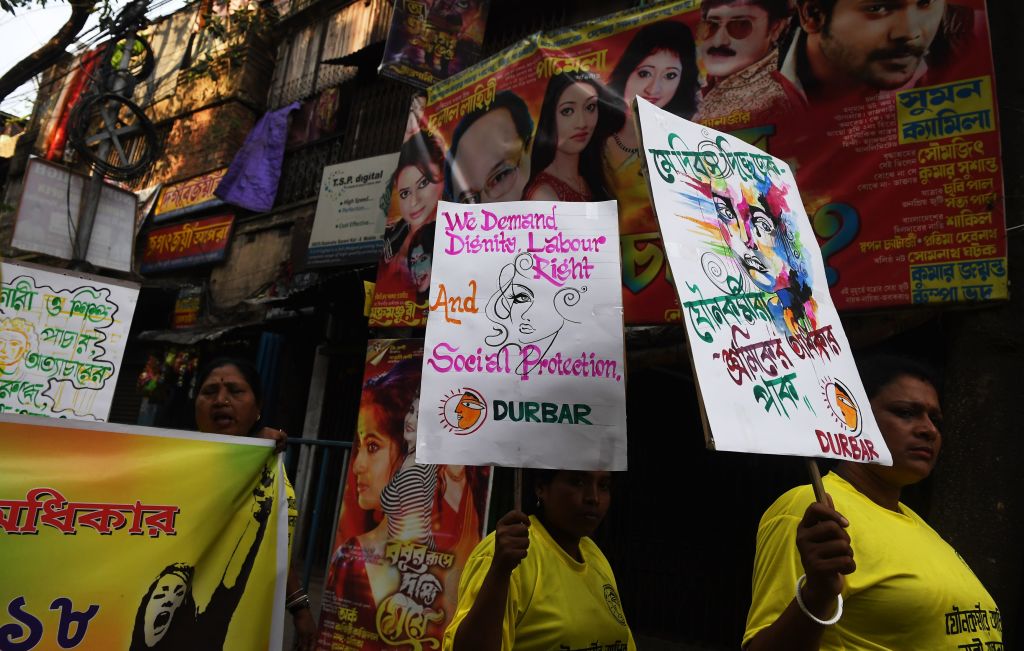- Thursday, April 25, 2024

By: Shubham Ghosh
IN a relief to India’s sex workers, the country’s supreme court has said that the government must enroll them into digital systems that give access to opportunities like voting and benefits of social welfare.
Several thousands of people in India have lived long without having any of the two benefits.
On Tuesday (14), the apex court said that the central and state governments must issue voter and ration cards to the sex workers. A panel comprising three judges also said that they should be enrolled for Aadhaar, a biometric system which aims to cover the entire country and is often key for availing benefits.
“The fundamental rights are guaranteed to every citizen of the country irrespective of his or her vocation,” the supreme court said.
“There is a bounden duty on the government to provide basic amenities to the citizens of the country.”
The top court was hearing a plea filed by a collective of sex workers based in Kolkata in the eastern state of West Bengal named Durbar Mahila Samanwaya Committee (DMSC). In the plea, the body highlighted various problems that are faced by the sex workers during the coronavirus pandemic.
The collective, which said it has over 130,000 registered members, said the sex workers faced extreme economic hardships and sought relief measures for them – both woman and transgender – across India, the New York Times reported.
“It is great achievement providing citizenry identity to sex workers,” Biplab Mukheerjee, an adviser for the DMSC, said in a telephonic interview to the New York Times from Kolkata.
“This involves years of struggle and decades of suffering of hundreds of thousands of sex workers in this country,” he added.
While prostitution is legal in India, running a brothel and related activities such as soliciting and pimping are not. According to rights groups’ estimate, India has about 900,000 sex workers and most of them, they say, have been forced into the trade by extreme poverty and sometimes by human traffickers.
Two prostitutes told the US daily in interviews that they had no work during the pandemic, particularly after the government imposed a lockdown last year when the first wave started. This resulted in exodus of migrant workers who, the prostitutes said are their main customers, from major cities to their homes located in distant places.
One such prostitute told the daily on the condition of anonymity that she might have died of starvation as she had little money during the lockdown. It was food from the Sikh gurdwaras that support the needy that kept her alive.
The DMSC filed its actual petition a decade ago to win constitutional protection. In September last year, the court had asked the country’s states to provide dry food rations to the sex workers without requiring to see their identity cards.
On Tuesday, the top court also demanded a status report on the directive be provided within four weeks. In the meanwhile, it said the governments should give the documents to the sex workers.
In 2020, the sex workers had a setback when India’s National Human Rights Commission reversed its earlier decision asking the states to recognise sex workers as informal workers, allowing them to get benefits from a government programme meant to help India’s poor during the pandemic, the New York Times said.
The court then intervened and asked the government to give the rations in response to several pleas by advocacy groups after a survey by DMSC found that less than half of the sex workers gained from any government food-programme meant for the poor.
For activists like Gitanjali Babbar who works for the welfare for more than 1,000 sex workers in New Delhi, the question is more about dignity than giving utilities. Food and other assistance that some of the government and private groups gave to the sex workers were not adequate to meet requirements such as paying rent, school fees for their children and debt.
“This not just about subsidised rice, but about dignity. Why can’t sex workers have same benefits as other citizens of the country?” she told the US news outlet.